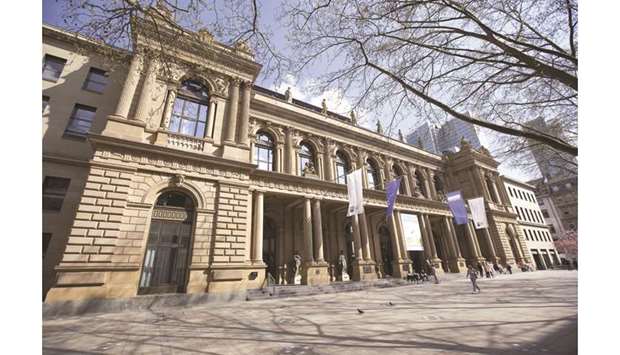Stock traders found little to get the pulse racing yesterday as the trade war front was eerily quiet and Thanksgiving week sapped global trading volumes.
“It’s been quite the forgettable week and I don’t think today is going to be any more memorable,” said Craig Erlam, Senior Market Analyst at Oanda Europe.
With an almost empty economics schedule, markets were left primarily with the US-China trade conflict to trade on, as so often in recent weeks and months, he said.
“Let’s face it, a deal is hardly looking likely at this point,” he said, predicting that markets were therefore headed for a “dull” December.
European stocks markets gave up earlier modest gains to drift lower, closing on a weaker note.
London underperformed its eurozone peers in response to a stronger pound which was boosted by expectations that Britain’s ruling Conservatives will win next month’s general election.
This would likely allow Prime Minister Boris Johnson to push through his Brexit agreement and avoid a no-deal divorce from the European Union.
London’s FTSE 100 closed 0.9% down at 7,346.53 points, Frankfurt’s DAX 30 ended 0.1% lower at 13,236.38 points and
Paris’ CAC 40 dropped 0.1% at 5,905.17 points, while the EURO STOXX 50 was flat at 3,703.58 points at close.
Shares of trade-sensitive auto parts makers shed 0.8% in their sharpest one-day drop in more than a week.
The tech sector, which includes chipmakers with a large exposure to China, was down 0.6%.
“I wouldn’t go as far as to say that we’re back at square one, but this clearly underlines the more structural tensions between the United States and China,” said Teeuwe Mevissen, senior market economist at Rabobank.
“But the interests for both China and the US to not escalate the situation and pause this conflict are still very much alive.”
Data this week showed German business morale rose in November, but the manufacturing sector is still declining.
Virgin Money UK Plc jumped 21.4% to the top of the STOXX 600 as traders reacted positively to provisions for the payment protection insurance mis-selling scandal, which were within its previous expectations.
The stock is on track for its best day since going public in 2016.
Wall Street was also lower in the late New York morning as traders, returning from a Thanksgiving holiday, allowed the main US indices to retreat from record highs hit earlier in the week.
US President Donald Trump’s decision to sign a bill in support of pro-democracy protesters in Hong Kong and back their rights has sparked warnings of retaliation from Beijing and fuelled fears for negotiations on a mini trade deal that are in their final straight.
However, China has not detailed what its response to the Hong Kong law will be and observers say it is unlikely to do anything to derail a tariffs agreement owing to its weakening economy.
“China’s threats to retaliate over the US Hong Kong law will probably remain just that; threats,” said Jeffrey Halley, also at Oanda.
“China has its own issues, especially around corporate debt and regional bank credit quality. It can ill-afford to waste any progress so far. Pragmatism should overcome anger.”
On the corporate front, shares in Daimler dropped on the Frankfurt bourse as the German luxury automaker said it would slash at least 10,000 jobs worldwide in a major cost-cutting drive to help finance the switch to electric cars.
Shares in UK online supermarket Ocado surged after the company announced a deal to provide artificial intelligence (AI) capabilities to Japanese retail giant Aeon.
Among the day’s rare economic figures, eurozone data showed inflation rose to 1.0%, higher than analysts’ projections but still lagging under the weight of trade tensions.
Oil prices slumped ahead of an Opec meeting next week that is expected to “roll over but not deepen” current output cuts, according to Caroline Bain, commodities analyst at Capital Economics.
Figures showing higher than expected oil output by US producers also weighed heavily on prices, said David Madden at CMC.

A view of the Frankfurt Stock Exchange. The DAX 30 ended 0.1% lower at 13,236.38 points yesterday.
